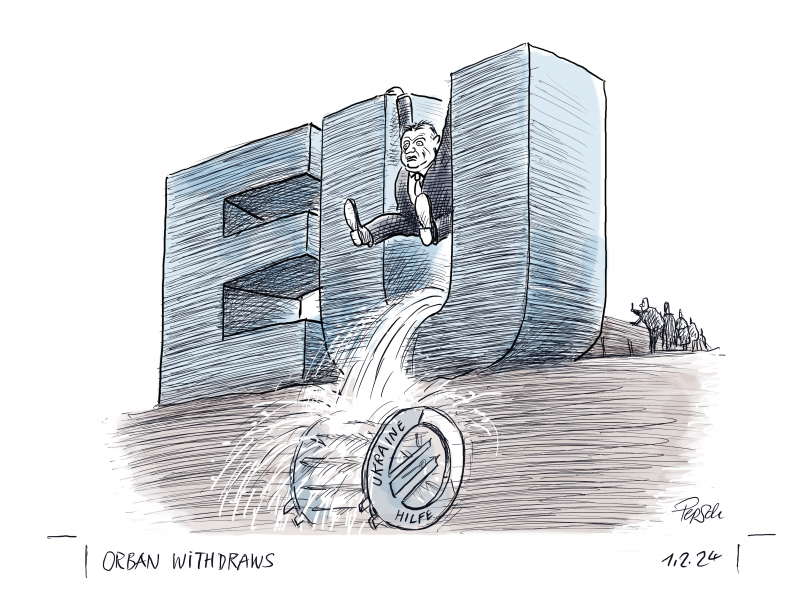[ad_1]
Alejandro N. Mayorkas, the homeland security secretary, did not take time for a victory lap after surviving a chaotic impeachment vote in the House this week. He hopped a flight to Las Vegas, where he outlined security preparations for the Super Bowl.
Impeachment, he insisted on Wednesday, was not at the top of his mind.
“The allegations are baseless and I’m focused on the work,” Mr. Mayorkas told reporters who peppered him with questions about the proceedings back in Washington the day before.
After three years on the job, Mr. Mayorkas has learned to keep his head down through the drama, his confidants say. That skill could come in handy again soon, as House Republicans plan a second attempt at impeaching a man who has become the face of one of the most divisive topics in American politics: the southern border.
“I think this is unpleasant for him and his family, but he’s singularly focused on his job,” said Cecilia Muñoz, head of the White House Domestic Policy Council during the Obama administration. “For anyone that knows him at all, that’s not surprising.”
Mr. Mayorkas, 64, has come under fire from the moment he stepped into his role, particularly from Republicans who see chaos at the border as a useful political strategy in their efforts to capture the White House in 2024.
He has testified in front of Congress in public hearings more than two dozen times, the most of any member of President Biden’s cabinet, as the number of people crossing into the United States has reached record levels. He is also the first Latino to run the department; his family fled to the United States when he was a year old, escaping the communist rise in Cuba.
Mayorkas cited his upbringing in a January letter to Representative Mark E. Green, Republican of Tennessee and the chairman of the Homeland Security Committee, who has led the charge for impeachment.
“My reverence for law enforcement was instilled in me by my parents, who brought me to this country to escape the Communist takeover of Cuba and allow me the freedoms and opportunity that our democracy provides,” Mr. Mayorkas wrote. “My parents experienced such loss at the fisted hands of authoritarianism that the American law enforcement officer stood as a tangible symbol of safety and the rule of law in our new home.”
House Republicans have argued that Mr. Mayorkas should be impeached on the grounds that failure to enforce certain aspects of immigration law is a constitutional crime. But in the United States, the president and his administration have wide latitude to control the border, and Mr. Mayorkas has not exceeded those authorities.
Mr. Mayorkas rose to prominence in California as U.S. attorney for the Central District of California in 1998. During the Obama administration, he held key roles at the Department of Homeland Security, including as head of U.S. Citizenship and Immigration Services from 2009 to 2013, when he oversaw the rollout of a popular program protecting thousands of people who came to the United States as children. He later served as deputy secretary of the agency.
Angela Kelley, a former senior adviser on immigration to Mr. Mayorkas, said his business-as-usual actions after the impeachment vote showed how he felt about the entire process.
“I think it signals that he’s put his head down and is doing his job and nothing he’s done is an impeachable offense,” she said.
Mr. Mayorkas was well aware that taking the job as secretary of the department would come with an intense level of scrutiny, especially after the Trump administration brought immigration policy to the forefront of voters’ minds, Ms. Muñoz said.
“He knew when he took the job it was going to be the subject of terrible politics,” she said. “It only gets worse year after year. He knew what was going to be an issue, and he took the job with eyes wide open.”
At the news conference in Las Vegas on Wednesday, Mr. Mayorkas batted away questions about whether he would resign if Republicans got enough votes to impeach him in the future.
“No,” he said. “I would not.”
[ad_2]
Source link









![[Opinion] Farmers are right to protest — but Green Deal is wrong target [Opinion] Farmers are right to protest — but Green Deal is wrong target](https://media.euobserver.com/113d5ff036081b16fdb6155b1b19bf46-800x.jpg)










